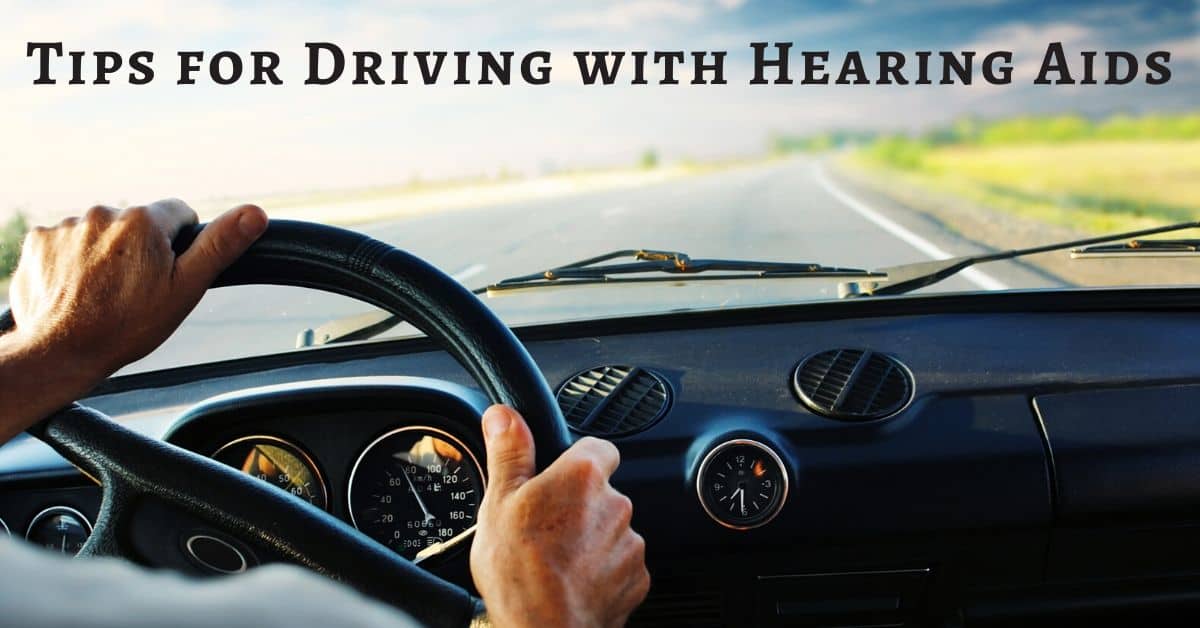Although we rely a lot on our sense of vision on the road, hearing plays an important supporting role. It is essential you’re able to hear the full range of sounds when driving, whether they are sirens from emergency vehicles, other car horns, or defects in your car. If your hearing is impaired, it can be a risk to your driving and others who share the road.
To that end, here are some of the things we recommend you do when driving with hearing loss.
Use a hearing aid
This is the most valuable thing you can do to stay safe when driving.
Driving with untreated hearing loss can be downright dangerous for you and your passengers. The first step towards safe driving is to schedule an appointment to have your hearing tested with a hearing specialist to determine if you need a hearing aid.
If you are already using hearing aids regularly, make sure that your hearing is continually tested to ensure that your devices meet your hearing needs correctly.
Take it easy if you’re a new hearing aid user
When you first start wearing a hearing aid, it can be a lot to take in. This newfound ability to hear can come as a surprise on the road. Revving engines, screeching tires, and construction sounds suddenly become audible again, and don’t be surprised if you are overwhelmed by this new sonic landscape.
When wearing your hearing aids for the first time while driving, take a moment to sit on a residential street to make sure the volume is set to an appropriate level. Start with an easy drive in your neighborhood or a slow-moving lane, without much traffic. You will immediately notice a wide array of sounds, and this kind of driving is an excellent way to get used to your new devices.
Keep a quiet environment inside the car
You can’t control how loud the ambulance is, but you can control what’s going on inside your vehicle. It’s a good idea to place aural awareness ahead of listening to your favorite songs. When you are riding with passengers, ask them to ride with you in silence, and keep conversations to a minimum. This will help keep your focus entirely on the road in front of you.
Beware of your reaction times
If you are an older adult, your reaction times have probably slowed down a little. Studies show seniors with slower reaction speeds appear to brake too early, increasing the risk of a collision.
Try to leave home early so that you are not in a hurry, as this will help you drive more carefully. Do not follow the car too carefully in front of you, because if they stop abruptly, you will need the extra split second to respond. Watch the road ahead for upcoming hazards and always check your blind spot and rearview mirrors, so nothing surprises you.
Make use of a visor card
If you’re required to deal with a police officer or traffic patrol, we suggest bringing a visor card to fit the inside of your windshield visor.
The card is a simple way to inform the officer you might be having trouble following their directions due to your condition. Having instructions in writing can help keep communication expectations clear during traffic stops. These cards can easily be found online and printed.
Don’t forget to maintain your car
Regular car maintenance is a must-have, whether you have hearing loss or not. But if you’re unable to hear, you could fail to hear rattling under the hood or a dashboard alarm beep.
Consult your mechanic regularly and make sure your power brakes and power steering work properly. It might also help to install bigger mirrors so that your eyes can help you catch anything your ears don’t.
We are committed to keeping you safe at A Better Hearing Centre. If you have experienced any changes in your hearing lately, or have trouble with your current hearing aids, contact us today to set up an appointment.

